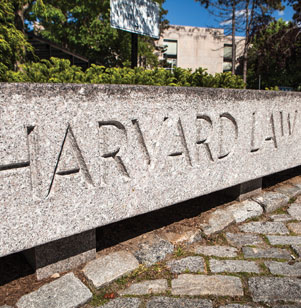Thursday, August 16, 2018
How to Win Friends and Influence People
“And I tell you, make friends for yourselves by means of unrighteous wealth, so that when it fails they may receive you into the eternal dwellings. One who is faithful in a very little is also faithful in much, and one who is dishonest in a very little is also dishonest in much.” Luke 16:9-10 (ESV)
It is no secret that the priorities of Jesus regularly riled up the religious leaders of His day. Jesus’ proclivity for welcoming the disreputable “sinners and tax collectors” into relationship and community became a particular target of their ire and scorn. The series of four parables in Luke 15:1-16:15 function in tandem as a sort of “apology” for Jesus’ radical inclusion and acceptance of such shadowy characters as deeply consonant with the shape of God’s coming kingdom in the world.
Luke 15:1-2 plays the set-up role for the four outrageous parables that follow, each building in dramatic intensity, in clarity of a scandalous message, and in subverting and violating what almost universally holds for common sense in a fallen world. The “therefore” in 15:3 indicates that the four stories illustrate why He “receives sinners and eats with them” in His home. Likewise, Luke 16:14-15 provides a climactic summary, gathering up the main point of the parables. It turns out that the Pharisees despise Jesus’ priorities because they are “lovers of money” and thus on the wrong side of the God’s purposes in creation—in spite of how they pose piously before human beings, masking their true motives for their abhorrence of such unclean sinners.
Yet it is only in the final parable that Jesus’ apology for His kingdom-shaped ministry appears in all of its shocking beauty. Strangely commended by the business owner he has just swindled (16:8), the dishonest steward’s motives and actions tend to confuse the reader. In what way does his behavior reflect Jesus’ ministry? How are we supposed to imitate him? Clearly, not in being greedy or dishonest over financial matters per se (we are to be “shrewd” like him (16:8), yet while being as innocent as doves, as in Matt. 10:16). Yet to stop there would be to miss the whole point.
16:4 provides a crucial insight into what motivates the dishonest steward, into what motivated Jesus in His ministry—and into what should motivate us, as well. Faced with his own crisis (he is about to be fired, destitute and broke), the dishonest steward pursues relationships with new friends via his master’s money (by cutting them deals on their debt), “so that when I am removed from management, people may receive me into their houses.” This clearly echoes the opening description of Jesus’ practice of welcoming tax collectors and sinners in 15:1-2. And when Jesus Himself finally breaks the fourth wall in 16:9, we find Him repeating, virtually word-for-word, the express motivation of the shady steward in verse 4: “And I tell you, make friends for yourselves by means of unrighteous wealth, so that when it [money] fails they may receive you into the eternal dwellings.”
This is the main point of every story in Luke 15:1-16:15. It is the driving priority that animated Jesus’ own practice of pursuing risky relationship with those outside the covenant people of God. And it is the one thing He asks of us when it comes to what we value and what we do when we open our wallets and consider how to spend the money He has entrusted to us. It is an unavoidable fact that entering into and remaining with messy relationships is costly—costly in many ways, certainly, but always costly financially. We cannot love broken people well without taking a significant hit on the bottom line of our bank accounts. We can either be lovers of money, or lovers of people made in the image of God. We cannot be both. We will only be one or the other. Jesus sides with His Father when this common crisis rears its head in His ministry and chooses to be a friend of lost sinners, while the Pharisees prove themselves to be only “friends of money” (a literal translation of 16:14!). Only insofar as their desire for money is not threatened are they willing to engage in friendship with others. And that means, necessarily, avoiding the outcasts, the misfits, the losers, and the devastated and marginalized. It is fairly easy to love other wealthy, privileged people (only). But this is not the way of Jesus, and it must not be our way.
Father, help us by the grace and power of Your Spirit to imitate Your Son, our Lord Jesus, in His privileging of relationships with human beings made in Your image over the love of money. Give us discernment for how we can use the money You have entrusted to us as a means to an end to making friendships that will last forever. Give us eyes to see and hearts to feel the upside-down brokenness of the way the world values these things, and to have our lives aligned radically with the values of Your kingdom instead. Like Jesus, help us to be friends of sinners and outsiders instead of friends of money. Amen.
Nick Nowalk
Teaching Fellow, Christian Union at Columbia
Selected Resources to Explore for a Cultural Revolution in Business
BOOK (96 pages): Business for the Glory of God by Wayne Grudem
This biblically-based book is a thoughtful guide to imitating God during interactions with customers, coworkers, employees, and other businesses. See how your business, and your life in business, can be dedicated to God’s glory.
BOOK (235 pages): Making the Grass Greener on Your Side by Ken Melrose
The book tells the real-life story of how one company adopted and implemented a model of “servant-leadership” in his organization. He tells how, by working for and serving the rest of the organization, he cultivated an environment for individual growth, creating a win-win situation for the company and its employees.
AUDIO (58:00): Faith and Work in Finance
Bob Doll is Chief Equity Strategist and Senior Portfolio Manager at Nuveen Asset Management. Christian Union hosted a salon in New York City in 2017, at which Doll discussed the intersection of Christian faith and finance. He shares observations about careers and attitudes of those in finance, with a focus on money, and makes further observations about capitalism.
Upcoming Prayer Calls
This Sunday, August 19, we invite all participants of the fast to tune in for a live video-conference prayer call, lasting 30 minutes. Starting at 9pm Eastern/8pm Central/7pm Mountain/6pm Pacific, you can view the prayer meeting streamed at DayAndNight.org and participate by watching, praying along, and commenting. It will also be streamed on the Day and Night YouTube channel and on Day and Night Facebook page, although the best place to watch is on the website.
Learn More
Click here to join the 21 day fast or to learn more about Christian Union Day and Night.



